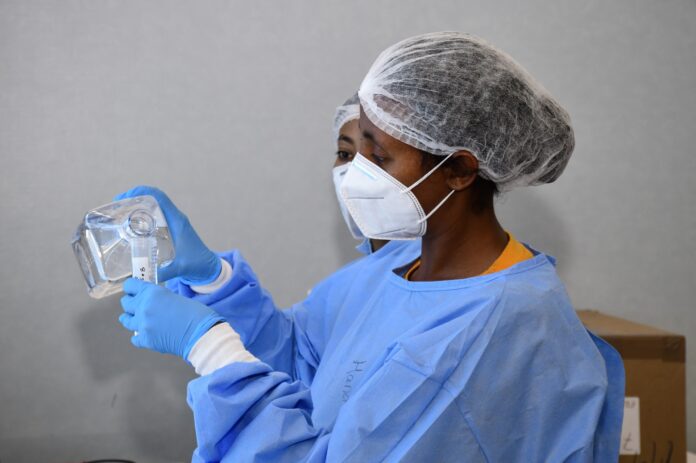Eritrea has entered a new chapter in its journey toward scientific and health independence by launching its first genomic sequencing program. This marks a turning point in the country’s ability to detect, study, and respond to diseases using its own expertise.
For the first time, Eritrean scientists can identify and monitor viruses and bacteria inside the country without depending on foreign laboratories. This is more than a scientific achievement. It is a statement of confidence that Eritrea can protect its people through its own capacity and knowledge.
Fifteen Eritrean specialists, most of them from the National Health Laboratory, received advanced training in Asmara. The training was organized with the support of the World Health Organization’s Regional Office for Africa and the European Union’s Health Emergency Preparedness and Response Authority. For fifteen days, they worked on preparing samples, sequencing protocols, and interpreting genetic data that will help the Ministry of Health take faster and more informed action.
Dr. Saleh Mohammed, Head of the National Health Laboratory, described the moment as a major step forward. “The COVID-19 pandemic showed the world that genomic surveillance is essential. With this achievement, Eritrea is ready to take its place among countries building Africa’s health intelligence.”
Genomic sequencing helps scientists understand how diseases evolve and how resistance to medicine spreads. It gives the Ministry of Health the power to act early and accurately, making Eritrea less dependent on others during times of health crisis.
The program is part of Africa’s ten-year plan to strengthen genomic capacity across the continent from 2022 to 2032. Eritrea’s participation confirms its determination to be part of Africa’s scientific rise, guided by self-reliance and responsibility.
A senior official at the Ministry of Health said that Eritrea’s goal is not just to benefit from such programs but to contribute to the region’s knowledge and safety. “We want our laboratories to be part of Africa’s collective strength, not its weakness,” the official said.
The World Health Organization will continue to support Eritrea through technical guidance, new equipment, and follow-up training. The long-term goal is to make genomic sequencing a permanent part of the country’s public health system.
This is not just a story of technology. It is a reflection of Eritrea’s broader vision of independence, discipline, and scientific growth. At a time when global health challenges are increasing, Eritrea is quietly proving that progress does not depend on size or wealth but on willpower and commitment.
Eritrea has stepped into the genomic age with confidence. Its scientists now stand ready to protect their nation and to contribute to Africa’s collective health security with skill, pride, and purpose.

